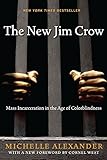 If you are anything like me, you cried along with Jesse Jackson on the November night, now almost four years ago, that Barack Obama was first elected president. Jackson, who had been with Martin Luther King the night he was shot in 1968, seemed to be passing the torch from a generation of black men and women who had known segregation and racial oppression to a new generation that not only stood as equals to white people, but could offer up a leader to help bring the nation out of a financial crisis.
If you are anything like me, you cried along with Jesse Jackson on the November night, now almost four years ago, that Barack Obama was first elected president. Jackson, who had been with Martin Luther King the night he was shot in 1968, seemed to be passing the torch from a generation of black men and women who had known segregation and racial oppression to a new generation that not only stood as equals to white people, but could offer up a leader to help bring the nation out of a financial crisis.
But if you were one of hundreds of thousands of young black men in prison, many of them on drug charges, Nov. 4, 2008, was just another night in a long march to nowhere It is the plight of these Americans, not the success of figures like Colin Powell and Oprah Winfrey, that law professor Michelle Alexander believes gives us the clearest picture of the true state of race relations in the Age of Obama.
In her book The New Jim Crow, Alexander, a former ACLU staffer, argues that the 30-year-old War on Drugs has created a de facto “racial caste system” to replace the Jim Crow laws that fell in the 1960s. Today, thanks in large part to the drug war, more than 2 million people, disproportionate numbers of them black and Hispanic, are locked up in America’s prisons, giving us an incarceration rate of 750 per 100,000 people, outpacing even repressive regimes like Russia, China, and Iran. In major cities, Alexander says, four out of five black men have criminal records, which not only takes them out of the legitimate economy while they’re in jail, but keeps them out of work after they’re freed because of widespread, and quite legal, discrimination against ex-convicts.
According to Alexander, an unholy cocktail of strict drug laws, selective enforcement, harsh sentencing rules, and societal discrimination against ex-cons has led to a systematic stripping of voting rights, economic security, and basic dignity for a generation of black men. To make matters worse, she says, most states restrict prisoners’ right to vote, rendering those most affected by the drug laws unable to help elect politicians who might make the system less draconian. She writes:
The stark and sobering reality is that, for reasons largely unrelated to actual crime trends, the American penal system has emerged as a system of social control unparalleled in world history. And while the size of the system alone might suggest that it would touch the lives of most Americans, the primary targets of its control can be defined largely by race.
Readers familiar with the horrors of the Jim Crow era may find it hard to see today’s drug war, harsh as it may be, as destructive a system of social control as decades of sharecropping, systematic disenfranchisement, and lynch law – to say nothing of the centuries of slavery that came before it. In her effort to wake up her readers, Alexander may be guilty of exaggerating for effect. If so, the exaggeration is worth it. The War on Drugs, and the massive buildup of our prison populations, has barely come up in this year’s presidential campaign. Before we lecture the Chinese and Iranians on their treatment of their ethnic minorities and dissidents, we need to look more closely at the millions of our own people we are locking up for years, often for no more than possession or sale of a few grams of weed.
The statistics Alexander cites, while shocking, are hardly new, and the racially stratified world she describes is visible to anyone with open eyes. It’s there when a white person describes a neighborhood as “sketchy,” and we know without having to ask that this means the area is full of poor people of color. It’s there if you drive in a car with a black man and notice how careful he is to abide by traffic rules whenever he sees a cop. If you are white, it’s there every time you pass a police officer and smile, knowing there is no chance he is going to stop you and frisk you for drugs.
“I have a dream,” Dr. King declared in 1963, that black Americans would “one day live in a nation where they will not be judged by the color of their skin but by the content of their character.” For many Americans, particularly those of us who are white, that day may have seemed to come four years ago when an overwhelming majority of Americans of all colors voted for Obama for president. The New Jim Crow reminds us that we aren’t there yet, not by a long shot.








